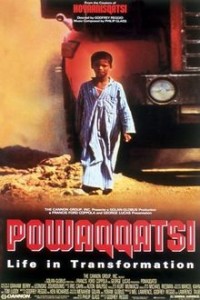Avatar
May 23
![]()
Well, the first thing that comes to mind after viewing Avatar: is there anything that James Cameron can’t do? He wrote the screenplay, produced it and then directed it. It still fascinates me when I try to comprehend how anyone is able to convince a major film studio to open their wallets to the tune of $250M!
At the same time he convinced them that they would not only get a decent return on their investment, but one that was going to be totally dependent on a film technology that hadn’t, at that time, even been fully developed. I’m sure he also dangled the possibility that the returns could approach a billion dollars. Which so far, and everyone is still counting the money, it has already returned two billion dollars in receipts. Without a doubt he is a compelling and determined visionary!
I guess it didn’t hurt that Titanic was already in his back pocket, among many other films of note. But still…
There was obviously an important story here and he knew exactly how he wanted to tell it. But it could be just a rousing science fiction adventure yarn, embossed with the most exotic and dramatic special effects created so far in the history of cinema. Could this be just a simple boy meets girl story intertwined with the fanciful hallucinations of a herculean filmmaker? I suspect that would certainly be good enough for the majority of the millions of Avatar aficionados around the world, something akin to why most people loved Slumdog Millionaire.
But others, myself included, would like to think that Mr. Cameron had a few more things on his agenda: the mind can run wild with Hindu theology, coupled with a parable of 22nd century American imperialism and capitalism. Always grasping in a crisis of our own making, we try once again to manipulate poor choices, and the efforts always turn to disaster whenever arrogance and power run amok.
And it is so true,Western culture has never come to grips with the indispensible network of ecology that we are all tethered to.We are constantly challenging the very phenomenon which gives us life. We exploit and abuse it, as if it is our inherent right to use up and destroy anything which was provided for us by creation and good fortune. It seems to be beyond our ability to comprehend that the destruction of the core means the destruction of all.
Always on script, we struggle mightily to usurp the laws of nature with a sterile one-dimentional technology, and then wonder why we fail miserably to sustain a liveable environment, all the while becoming farther and farther out of sync with our biological past.
It is illuminating to watch as science fiction melds more and more quickly into the realm of hard science. It is not so difficult now to make the leap between running out of resources on planet Earth, and eventually being forced by circumstances to search for other sources on distant planets, moons and asteroids. One would think we should create emerging sciences to prevent such future shortages, but instead we create gadgetry and mindless technologies that force us deeper into realms, which can only hasten the depletion of resources.
We stagger into the future, blindly addicted to questionable wizardry, while our final dependence and forced expeditions in the future are clearly beckoning. What fatal flaw drives us to such journeys? What drives us to consume, contaminate or destroy the finite resources that will at some point become so limited that all nations will be encumbered by economic and ecological calamity, until life itself is threatened?
The sheer numbers of human beings on this planet – seven billion and increasing dramatically everyday – is surely the key component in our ongoing slide towards disaster, but also, as the film points out so brilliantly, there is simply not the holistic consciousness that could possibly change the destiny of civilization. Without understanding that all life, whatever the form, is interconnected, and only our diminishing numbers can return us to the ecological balance required, the future looks bleak indeed.
James Cameron may not be an avatar as represented in Hindu tradition, but his film does us a great service by presenting a future scenario and stark warning about mankind’s repeated inability to choose the right course, and which ultimately then becomes an unavailable choice.
Remember: One Billion people = 1000 Million people
Environment, Films, Overpopulation Avatar, Overpopulation
1 Comment
 Powaqqatsi: Life In Transformation
Powaqqatsi: Life In Transformation